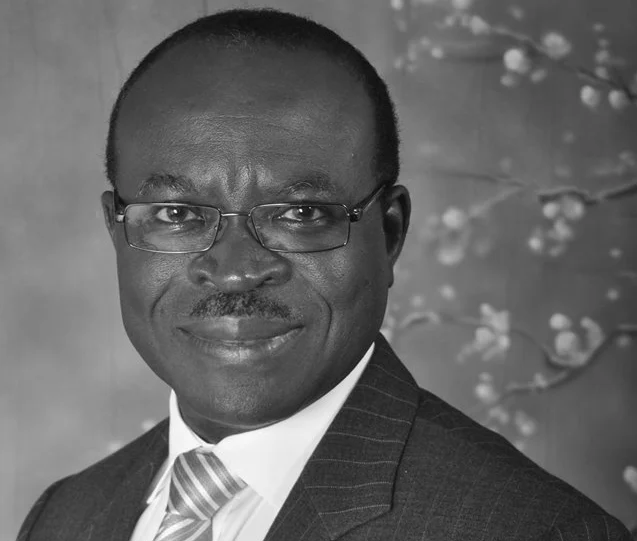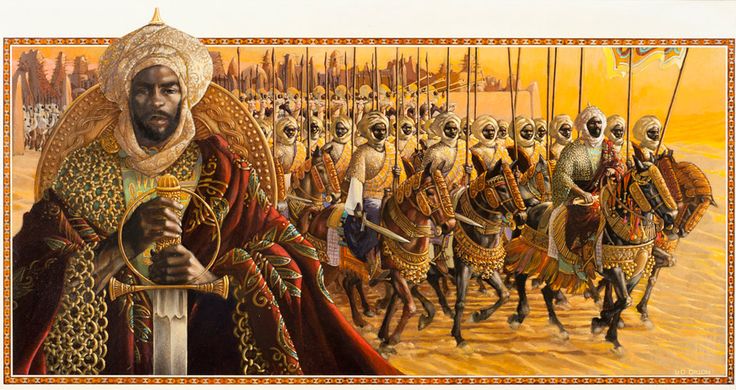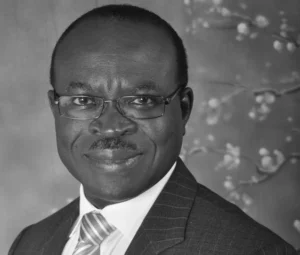Doctors Perbi and Biaye exploring the Dakar campus of Cheikh Anta Diop University,
including the frontage of the original medical school block built over 100 years ago.
It’s not for nothing that the Ghana Medical Association (GMA), in a January 2024 press release following a November 2023 Annual General Meeting, asked all medical doctors to thenceforth express their titles as ‘Dr. (Med)’ and ‘Dr. (Dent.)’ for dentists/dental surgeons. While they had their own valid reasons, including patient safety, personally it has coincided with a season where I keep meeting people who have always assumed my ‘DR’ title is because I’m a ‘book doctor.’ While I’m currently struggling to keep afloat in the middle of one such doctoral programme, of the latter kind, I’ve been a ‘body doctor’ since 2005.
In Dakar, Senegal on the Monday after St. Valentine’s Day, I experienced a rush of all sorts of memories—good and ugly, and even plain bad—when I took a pilgrimage to one of Africa’s oldest medical schools. My guide, an alumna of the said medical school, Dr. Rebecca Biaye, did a phenomenal job. Seriously, she could moonlight as a successful, paid tour guide but then again, until she’s done with her Dermatology residency her nights aren’t quite hers—she’s often on night duties at the hospital.
Back to medical history. Of course, Africans had medical doctors even before Hippocrates (the so-called ‘father of Medicine’) but in modern history the oldest medical school in Africa would be the faculty of medicine at Cairo University in Egypt, founded in 1827. From northeast we move deep south, where University of Cape Town in South Africa takes the silver medal (1912), and then out way west with bronze going to Cheikh Anta Diop University (formerly University of Dakar) where in 1916, the French created the “École Africaine de Médecine” (African Medical School). The University of the Witwatersrand (1919), also in South Africa, is a close fourth.
If anyone has cause to believe this order above is not accurate (for example a university may have started, yeah, but its med school came up much later or did start on paper but the first actual intake was several years down the line) do assist me to rectify the above narrative. My own med school, the University of Ghana Medical School (UGMS), missed the top five mention on the continent having been first planned way back in 1919, but only taking its first students in 1962, a whole 14 years after the main University of Ghana itself had been established.
Apparently, the most recent medical school in Africa was founded in 2023, according to an article in the British Medical Journal, with more than half of all Africa’s medical schools—public and private alike—opening since 2004. Incidentally, just a day before the said Dakar pilgrimage, I bumped into the co-founder of the private Accra College of Medicine (founded in 2013), Rev. Professor Adukwei Hesse, an Internal Medicine professor of mine. His co-founding wife, Prof. Afua Hesse, also taught me Paediatric Surgery. Ghana’s other private med school, Family Health Medical School, was also founded by my Obstetrics & Gynaecology lecturer, Prof. Yao Kwawukume, and his wife Dr. Susu B. Kwawukume. I’m proud to have lectured in both medical schools on non-medical topics which medical students badly need to be more rounded and holistic in their formation for higher, wider and deeper impact, especially leadership and entrepreneurship! (Oh, don’t get me started!) These kinds of thoughts and (mis)deeds for which I’m better known may be why the uninitiated assume I’m a ‘book doctor’ rather than a ‘body’ one.
A 100-year old baobab tree in front of the Cheikh Anta Diop University’s original medical school block
Health Leadership in general, and Doctor Leadership in particular, is vital yet often taken for granted. The last time I made a presentation on the importance of leadership and coaching to the Ghanaian medical fraternity during the Ghana College of Physicians’ & Surgeons’ annual Medical Fiesta (in 2022), I cringed and cringed when a former dean of my alma mater opined that medical students had too much of a course load to ‘add’ studying leadership. For ‘A Leadership Primer,’ literally the title of Dr. Robert Grossman’s incisive article, I highly recommend Dr. Robert Grossman’s incisive article on Doctor Leadership here. His introduction alone resonates with the title of this article, “Lessons from Medical History for Today’s Health Leaders.” Indeed, all of history is but a record of the rise and fall of leaders and leadership. Hear Grossman: “We know from history, and sometimes from personal experience, that the importance of leadership cannot be overstated. Whether in politics, business, sports, or academia, the person at the helm can alter the course of history. Yet to date, there is a sentiment that medicine (and radiology in particular) has failed to produce its share of leaders.”
Working IN medicine (clinician) requires a wholly different mindset, process and skill set from working ON medicine (leader). To be fair to the “book doctor” describers of this prescriber, I haven’t practised clinical medicine in over 15 years. But I’m always quick to add, as I coach, train, and speak on leadership in over sixty countries that “once a doctor, always a doctor.” It’s only that I work more on the software now [the mind(set)/thinking], rather than just the hardware [body].” Frankly, though–if we all will be honest–it’s the software that really runs the show, even running the hardware. N’est-ce pas?
Postscript
As our contribution to stopping the gaping leadership deficits we find among entry level workers and even with some C-level leaders, Perbi Executive Leadership Education (PELÉ) is rolling out a slew of online leadership lecturers for personal digital learning and mastery. Come to think of it, all medics should be getting enrolled for free. After all, our lives are in their hands. They had better know what they are about!










